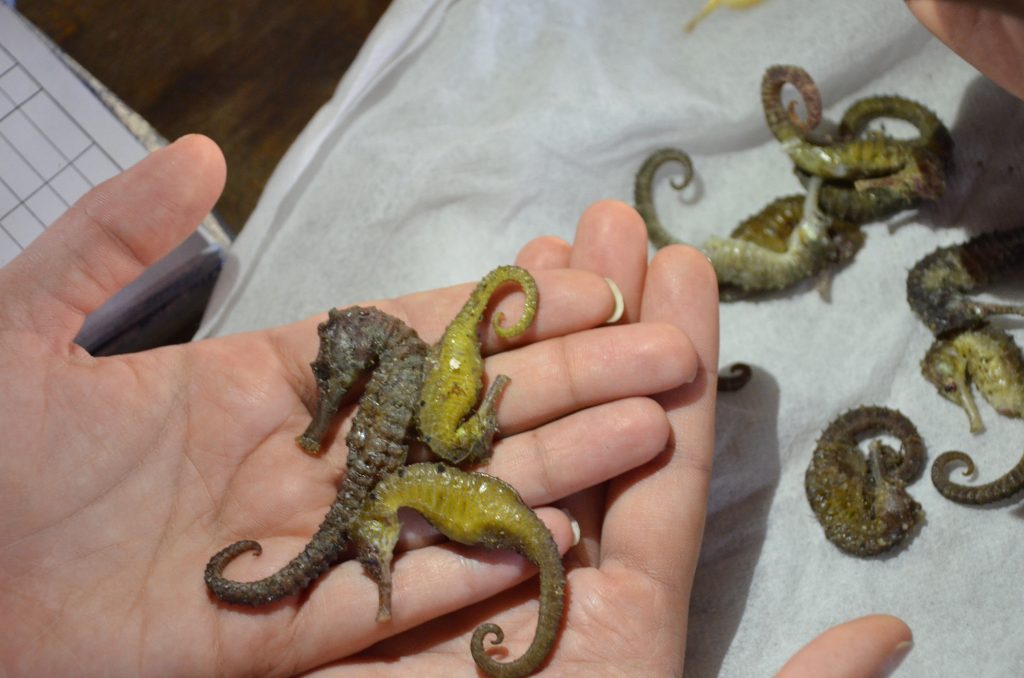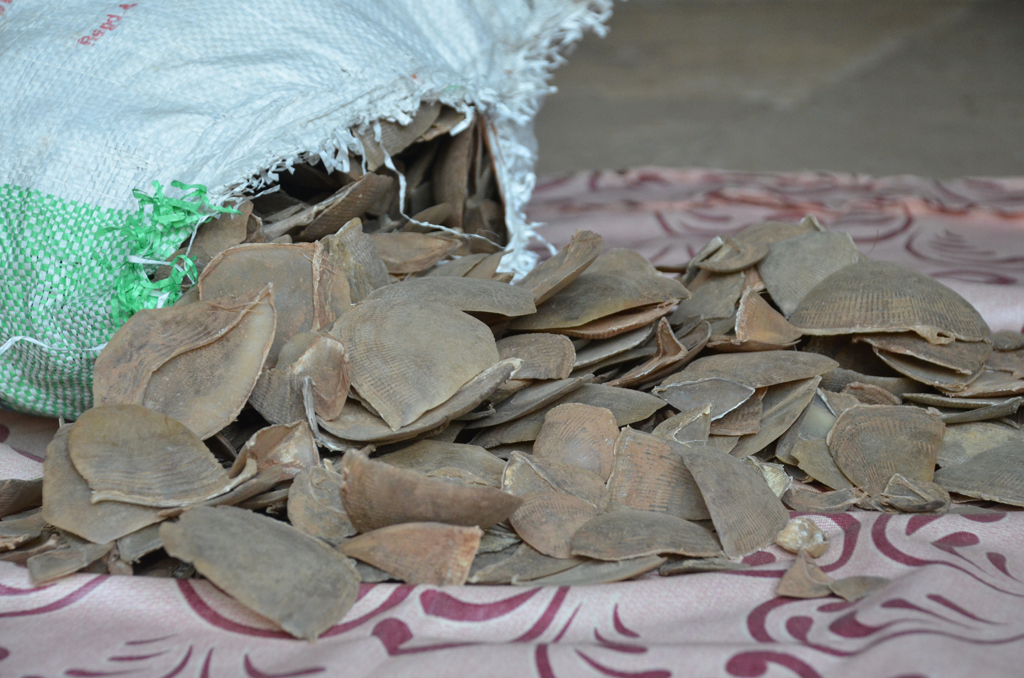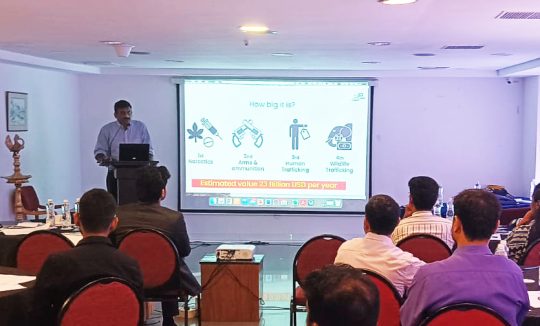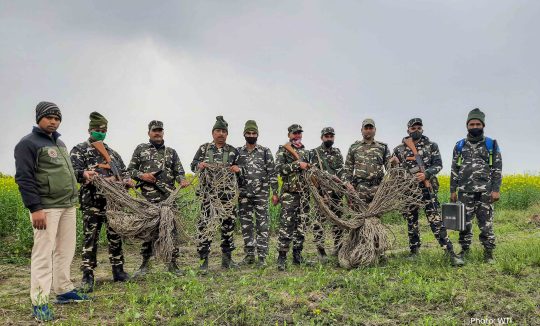Project Info
Project Description
Illegal Wildlife Trade or IWT as it is popularly known across the globe is identified as one of the major threats to the rich and diverse wildlife of India. It involves the unlawful trafficking of wildlife products, live animals, and exotic pets. All these directly or indirectly contribute to the decline of numerous native species and undermine conservation efforts locally and globally. IWT not only poses ecological and environmental risks but also has severe implications for national security, public health, and economic stability.
Unfortunately, India serves as a source, conduit, and destination of many of the wildlife products, such as pelts of big cats and bears; ivory from elephants, rhino horns, pangolin scales, and exotic birds and animals. These products largely cater to the demands of international markets, stemming from the use of traditional medicines, and luxury goods, or keeping them as status symbols. Moreover, the internet has emerged as a prominent platform for wildlife traffickers to conduct illegal trade. Online marketplaces, social media platforms, and other internet forums facilitate the discreet exchange of wildlife products and live animals, bypassing traditional law enforcement efforts.
Countering IWT and other associated wildlife crimes remains a priority for the country and it is because of this, that nodal agencies like the Wildlife Crime Control Bureau (WCCB) have been set up, which work with respective State Forest Departments in combating the illegal trade. Other enforcement agencies such as Police, Customs, Railway police, Border Police, and the Army also play a role in of countering IWT across the country and its borders, however in a limited capacity. Despite considerable efforts, it is often witnessed that agencies do not follow an organized and holistic approach to crack down on established wildlife crime networks.

Hathajodi, derived from the genitals of monitor lizards is marketed as the root of a rare plant | Photograph by Madhumay Mallik/ WTI
To bridge these gaps, the Wildlife Trust of India’s Wildlife Crime Control Division (WCCD) offers enforcement assistance to agencies in conducting operations and promoting awareness about the consequences of IWT. The long-standing Pan India Enforcement project, initiated in 2009, remains dedicated to supporting central and state agencies in combating IWT and associated wildlife crimes. WTI has successfully aided enforcement agencies in over 320 operations, leading to arrests and the seizure of illegal wildlife products. The project prioritizes counter IWT projects based on organizational and conservation needs.
Concerted efforts are made by the team to not only address the IWT affecting flagship species in India but also focus on lesser-known species such as Monitor Lizards (Hatha Jodi), Mongoose (hair meant for paint brushes), Sea fans, Sea cucumber, and Tokay Gecko that are in high demand within the IWT markets. The team gathers crucial field-based intelligence as enforcement assistance to agencies in countering this illicit trade effectively. To tackle the newest frontier of IWT i.e. in cyberspace, the project team actively monitors online platforms to detect and document illegal wildlife trade activities, providing essential intelligence to enforcement agencies. The project also conducts capacity-building workshops and training sessions for enforcement personnel to enhance their understanding of lesser-known species and the dynamics of the illegal trade. This knowledge empowers enforcement officers to identify and respond effectively to the ever-evolving changing tactics of wildlife traffickers. The Pan India Enforcement Project goes beyond mere reaction and emphasizes mass sensitization to discourage potential wildlife crimes by clarifying the distinction between legal and illegal activities. By shedding light on the covert nature of the crime, the project underscores the threats to native wildlife. Additionally, engaging cyber spotters to monitor online platforms encourages public participation, fostering a sense of responsibility in safeguarding India’s precious wildlife heritage.

Confiscated sea horses from illegal trade network | Photograph by WTI
In essence, the project aims to eradicate the continued illegal trade in targeted species by providing enforcement assistance to agencies through information-sharing, resources, and operational assistance.
Citizen science initiatives like the cyber spotter program, play a crucial role in preventing wildlife crime by identifying wildlife products such as large cat skins, ivory, rhino horns and live animals for the exotic pet trade worldwide. Counter IWT activities are carried out by the WCCB along with state forest departments across India. However, in many states, enforcement agencies do not follow or decipher important trade routes and links which manage and carry out IWT activities.
This initiative could also help in reducing the demand for wildlife articles among painters, artists, collectors, and elite societies. The online trade of wildlife and wildlife products is an area of growing concern as it has opened up many avenues for traders, making it imperative to closely monitor online trade by setting up a cyber spotter network and cyber cell. The project’s primary goal is to effectively dismantle the ongoing trade of targeted species via enforcement operations and awareness activities.
PARTNERS: The Serenity Trust and Wildlife Crime Control Bureau
For more information about the project: Debobroto Sircar











